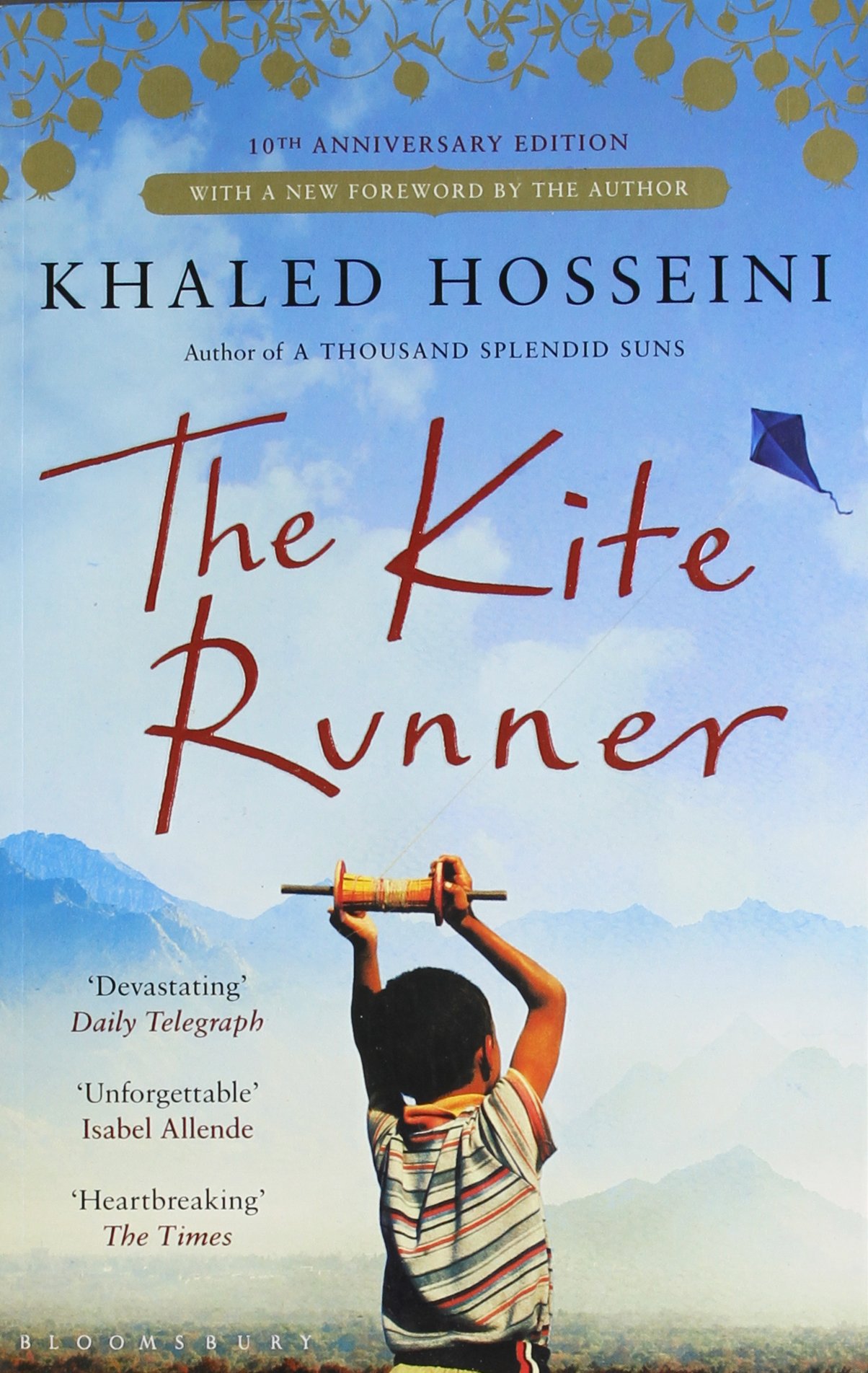 The Kite Runner
The Kite Runnerby Khaled Hosseini
reviewed by Lauren Bolte
A riveting contemporary fiction Bildungsroman by Khaled Hosseini, The Kite Runner tells the captivating story of a man and his journey to understand forgiveness and learn the true values of family. Amir, an Afghan boy from Kabul, struggles with the complications of wealth, lies, and family in the war-torn 1970s-80s. The reader is taken with him through time as he explores the world of compassion through both positive and negative personal experiences, often coming in conflict with his home country and its traditions. The importance of family is clearly stated throughout the novel, as Amir learns to appreciate his father, Baba, and his servants, Hassan and Ali, but not without extreme complications and hostility. Khaled Hosseini uses vivid imagery to help the reader clearly visualize the story using all senses, and become immersed in the dramatic world of the characters.
We are brought into the story en medias res, as there are no character introductions, only clues given through dialogue and other forms of indirect characterization. Amir’s childhood is an emotional mess. With the jealousy brought on by his neglectful father, he takes out his anger on his child servant, Hassan. His envy of Hassan’s naive outlook on life triggers unneeded anger, stemming Amir’s struggle to receive sympathy from his stoic father. This results in a whirlwind of lies and scandals, including Hassan’s rape by the neighborhood bullies. After Amir manages to tear his family apart at the seams, his life goes completely downhill. He and his father are sent out of Afghanistan due to the war, and chose to live in San Francisco. Success and happiness is abundant, until Baba is diagnosed with cancer. Amir finds a beautiful wife and the live a very happy life, even after the death of his father. However, there is something still stuck in the back of his mind: Hassan. He gets a call and is brought back to his home country after many years. At his arrival, he is slapped in the face with news that is almost unbearable to hear. It is news that plays a huge role in the rest of Amir’s life, and includes Hassan’s orphaned son, Sohrab. Sohrab is identical to his father, but extremely fragile and emotional, which causes many problems with their incredible journey back to America. After receiving the news that he might need to return to the orphanage, Sohrab causes problems that are luckily resolved. Amir and his nephew return to America, where their life is slow to begin, but ends up how it was meant to be.
Khaled Hosseini brilliantly uses expressive imagery to describe the detailed landscapes and environments throughout the novel. He uses imagery to engage all of the senses, especially when the characters are in the natural landscapes of Afghanistan. Amir describes Hassan while they are spending time together as “sitting cross-legged, sunlight and shadows of pomegranate leaves dancing on his face… absently plucked blades of grass from the ground as I read him stories he couldn’t read for himself” (p. 28). The reader can imagine themselves sitting in Amir’s place, gazing at Hassan’s boyish face. This writing technique is very important in the book because we can put ourselves in the shoes of the characters and truly get a sense of the setting. This descriptive point of view also allows for deeper thinking and contemplation of what the characters are thinking by what they’re sensing around them.
I would highly recommend The Kite Runner. The compelling characters and setting allows for a unique storyline that never gets boring. The reader is always in suspense, and I never wanted to put the book down. The author’s fantastic use of imagery truly brings the book to life, and I would suggest this book to readers that enjoy suspense and somber, yet dramatic storylines. Overall, I genuinely enjoyed reading this book and I look forward to reading more works by Khaled Hosseini.
No comments:
Post a Comment